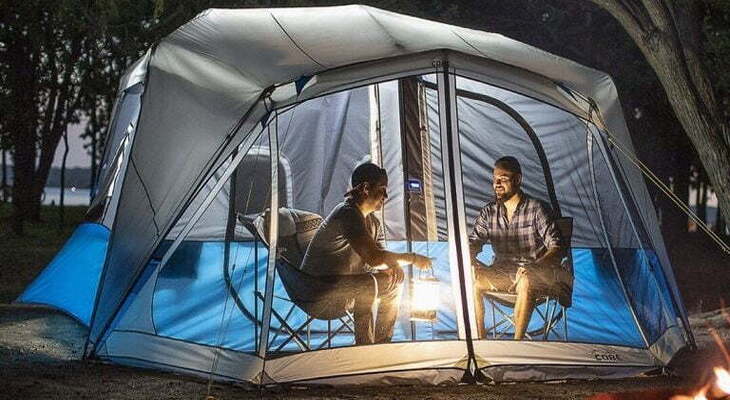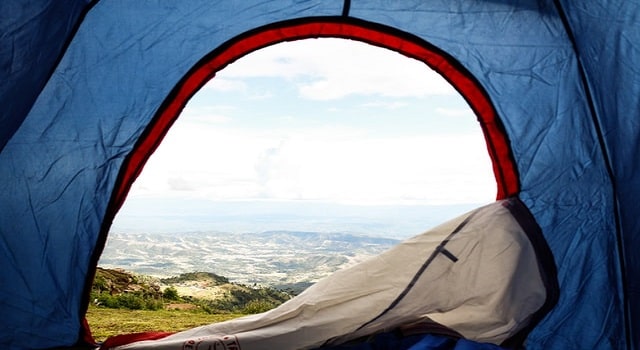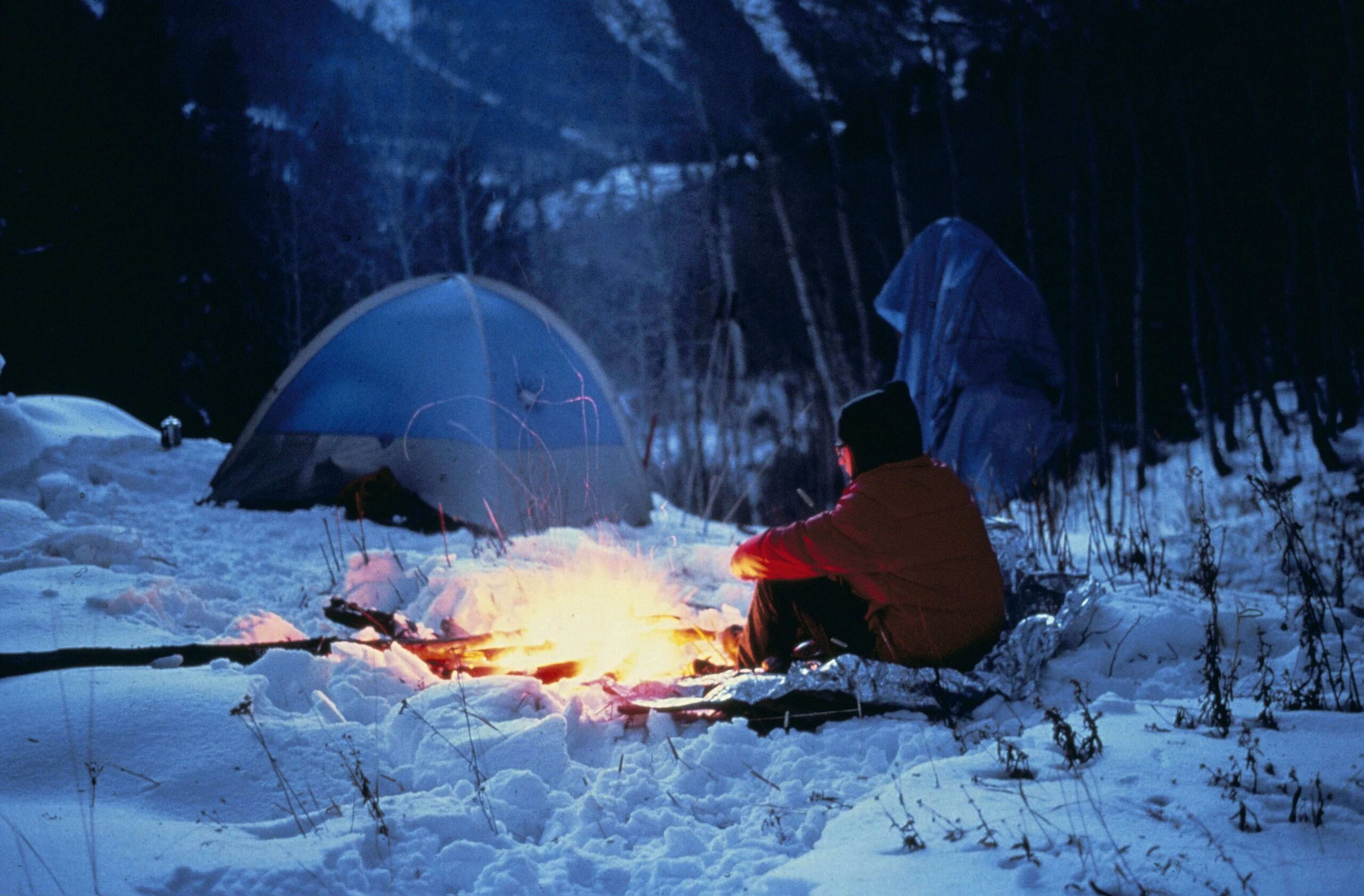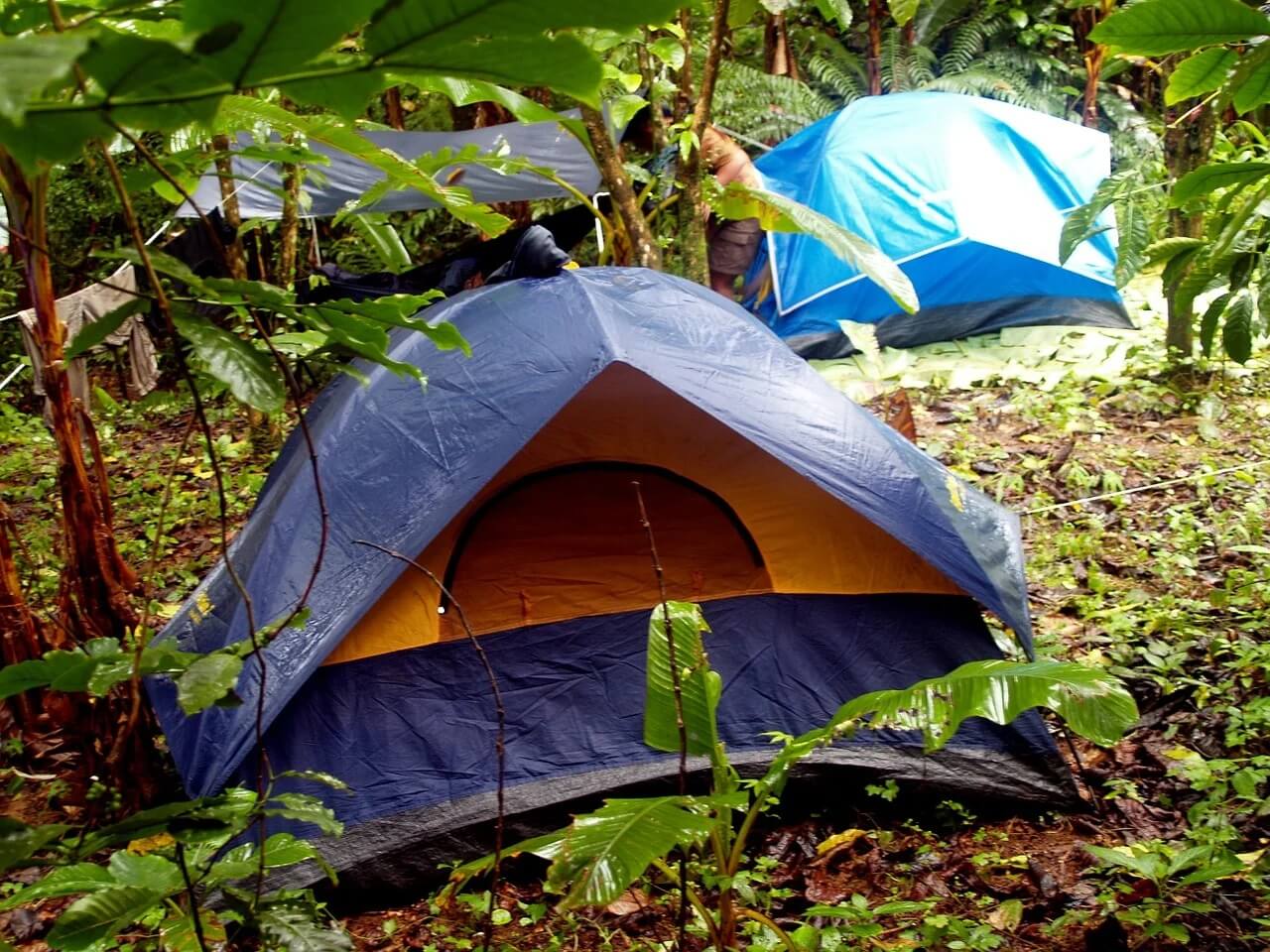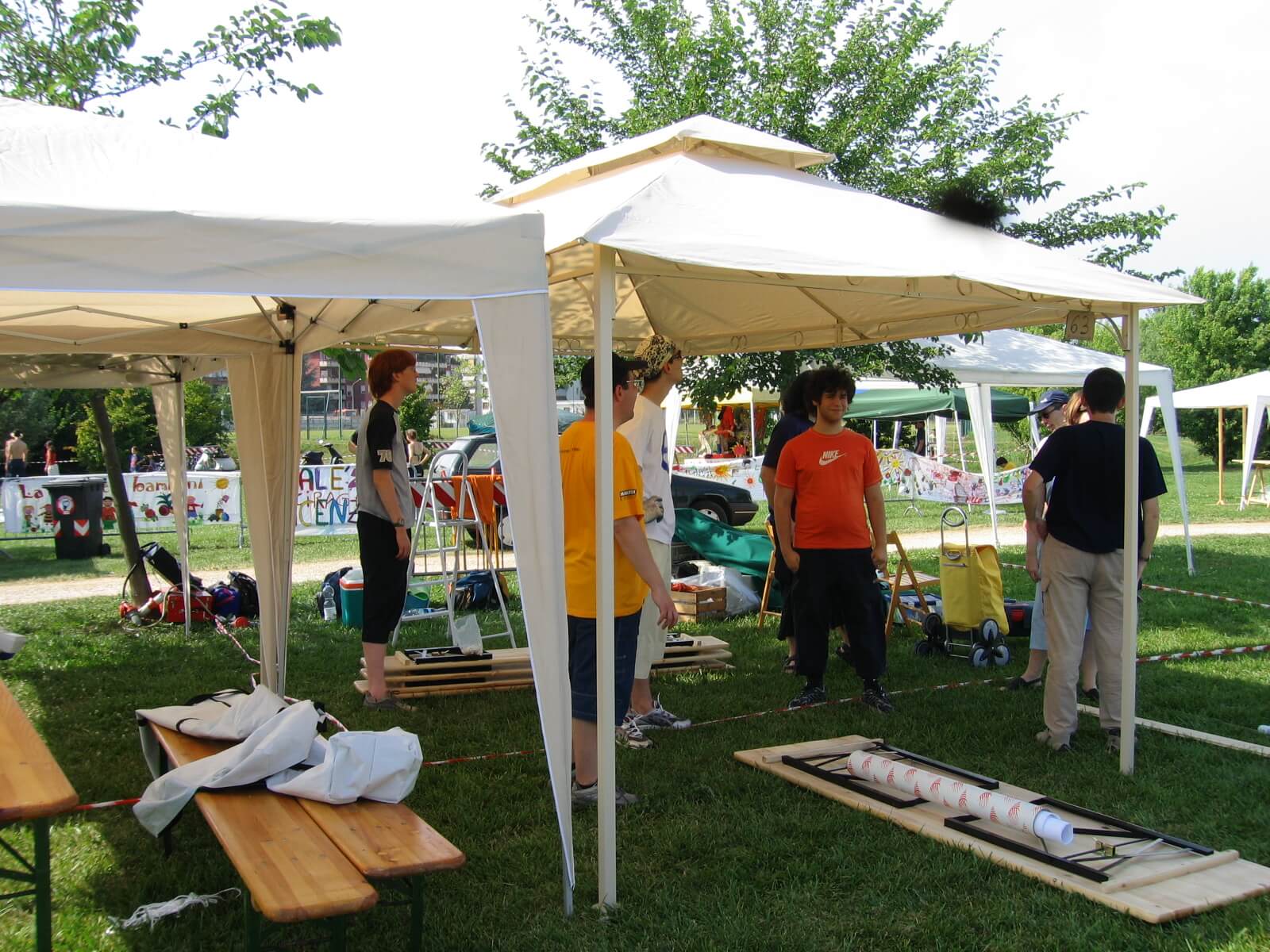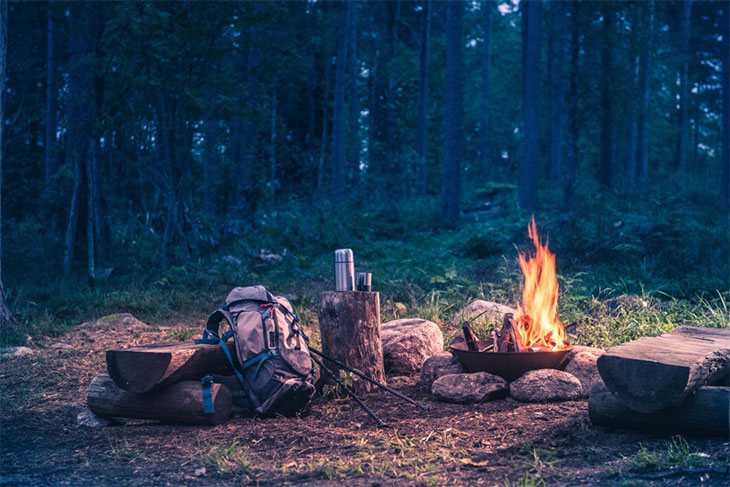
Before I am going to tell you how to do camping without a tent let me tell you one thing: what is camping without a tent called? It simply means you are going camping but you don’t use the tent for camping you may call it to bivouac i.e.
You may use an alternative to the tent on camping.
Camping without a tent is very adventurous as camping with a tent. As if you are a camper you know that taking a tent along with you on camping is sometimes difficult to carry as you are carrying weight with you.
It’s definite we go camping for freedom i.e. freedom of burden whatever the type of burden is. And to not carry a tent you feel another level of freedom.
Contents
Tips to How To Do Camping Without Tent
How I know is because I have experienced it myself and I do a lot of camping without a tent. So from my experience, I am going to share some helpful points as well as some precautions which will help you to enjoy your camping without a tent.
Some Important Considerations while you planning for camping:
Check the weather conditions properly on which site you are going camping.
If you are planning to go camping without a tent then, first of all, Are you checking the weather conditions whether there may be windy, clear or rainy weather.?
Then plan your trip accordingly, for example, if it is rainy then consider using a tarp, and if the weather is clear use a hammock then, etc.
1. Avoid the area near the lake or sea.
Choose the place to live or to stay overnight properly i.e. it is the place that should be away from the lake or sea. Because there may be a danger of flooding.
Try to avoid a place for sleep that is low-lying. Dozing at the lower part of an incline can leave you presented with surprising flooding, condensation, and even stone or landslides.
Attempt to discover generally high, level ground for sleeping. And in the case, on the off chance that you do rest on a slant, situate yourself so your head faces uphill.
2. Use bugs spray to avoid pests.
Going camping you need to know that you are staying out of your home and there are mosquitoes, bugs, etc. which are going to disturb you. So always carry bug spray along with you.
This will help the bugs and mosquitoes away from you. Also for safety spray your equipment with bug spray and you can also use the net to avoid bug and mosquito attacks.
3. Select a spot that is not too rocky.
Choose a place for staying or sleeping which is not rocky and in case if you find some stones then clean the spot first then use your sleeping bag or tarp to stay overnight.
4. Choose your dress properly according to the weather.
Even in summer if you are going to an open area for camping at night the weather becomes cold so choose your clothes accordingly. And in winter try to wear wool or synthetic fabrics it will help you to keep warm and also it protects your skin.
Also, make sure which thing you are using for sleeping. For example, if you are using a sleeping bag then use some light clothes because you may start sweating which is also not good for your health.
5. Wildlife:
Choosing a place for camping without a tent you need to be very careful about wildlife because the chances of danger may increase if you are not using a tent on camp.
So choosing a place to properly check the wildlife is safe to do camping on that side.
You may also contact the authorizing people to get info about wildlife. Overall set up campsites or state parks, watched by security or camping area supervisors, are the most secure spots to rest.
Now after consideration, you have to find some alternative things instead of the tent which fulfill your requirement for the tent.
Alternates of tent:
There are some most used things which you can use on camp as an alternative to the tent let’s discuss it one by one:
1. Tarp/ Canvas:
A tarp is a good option as an alternative to a tent. If you don’t like a bivy bag then use a tarp to shelter yourself in rain or you can also sleep under it.
You’ll have to bring twine or rope and tent stakes to get the covering set up. If the ground is wet, place a waterproof sheet or a second tarp on the ground under you to keep you dry during the evening.
A tarp will shield you from the sun; however, it will not keep out bugs or cold air.
2. Bivvy bags:
Bivy bags are a very good option in extreme weather conditions. In winter it helps you to keep warm and protect your body at night while sleeping from different types of insects.
Bivy bag is waterproof and breathable so it protects you from soil moisture and gives you a comfortable sleep. Also, they are very light weighted so you can easily carry them along with you for camping.
Make a lean-to shelter from trees or branches:
If you don’t have a tarp or bivy bags then another best alternative to both of that and a tent is to make a lean from branches and trees. The easiest is to prop a solid branch against a tree and afterward lean sticks against it to make a calculated asylum.
Cover the sticks with a layer of leaf litter or little twigs for additional insurance. For more safety, use a tarp on it so it will protect you from rain.
1. Hammock:
If the weather is clear then nothing can be a good option other than a hammock.
Just you need to find out the spots on trees or posts that you can connect your lounger to, just as enough haven to shield you from evening wind chill.
You can likewise hang up a covering or tent fly above you for additional security from the climate.
Ensure that theirs is sufficient space between the trees or posts with the goal that you can hang your lounger lead lines at a 30° point. A more honed point will put a strain on the lounger and the trees.
2. Use Your Car:
Sometimes you don’t find enough or a good place to sleep if you don’t use your tent then a good option is to choose your car or truck for sleeping.
Just use your sleeping bag and you can easily sleep in your car if your seats have a float-down option. But most cars do not have that option so using a car mattress will solve your problem.
3. Cowboy camping:
Cowboy camping is sleeping under the stars without using any kind of shelter. For a bed, you can assemble two enormous logs and spot them equal to 3 feet apart.
At that point, fill in the rest with any delicate material you can discover, for example, leaves and pine needles. Put the fire around your sleeping place and you are good to go.
Another important thing is if you are camping without a tent then there is always a danger of wildlife that can harm you so to protect yourself from wildlife here are some important tips that can stay animals away from you if you follow those tips.
Important Tips to stay away from the animals in your camping area:
- Never eat in your camping cot. Pieces will inevitably fall onto the floor, and creatures in the wild can smell significant distances. They will be pulled into your sack while you rest. This could be pretty much as straightforward as mice, raccoons, squirrels, or as large as a bear. Destroy food from where you intend to rest!
- Don’t leave food lying openly on the ground. Birds and squirrels can dip in a matter of moments and grab it up.
- If you want to be able to raise trees in the bear country then you need 10-15 feet starting from the earliest stage at any rate 4 feet from the storage compartment of the tree.
- If no trees are accessible you can utilize either bear storage (on the off chance that one is accessible near your camping area) or you can bring a bear confirmation holder or bear pack. The solitary issue with this is they are somewhat massive and substantial.
- Try to wash your dishes at any rate 100 feet from your region. Even food from your dishes will likewise pull in creatures into your site.
However, there is a different sort of creativity encompassing tentless outdoors.
Any individual who takes a stab at dozing outside at a tentless campground will feel achieved subsequently and will maybe feel, as numerous others have, that an otherworldly or mental weight has been lifted from their shoulders alongside the pounds they’ve shed from their backpacks.
Final Verdict:
Since you’ve perused the guide, you’re prepared to proceed with your tentless outdoor trip arranging.
After a touch more investigation of the different contemplations of tentless outdoors, you’ll be prepared to have a go at resting outside under your haven in any climate conditions with no dread, since you’ll have figured out how to do camping without a tent.
